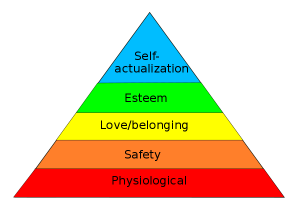LIVING ON A FOOTSTOOL
Bible readers are likely to have heard the phrase (from God) that “Heaven is my throne, and the Earth is my footstool.”
The Hebrew word Kavode denotes both “weight” and “glory”…so Heaven is where the weight and glory of God is (hence the throne)…so what is the footstool?
When we put up our feet to relax, we use a footstool. Our weight still rests on the chair we are sitting on but our feet are up. The footstool does not hold our weight (and glory) up at all…it simply holds our feet up. So, we need to approach the Earth in this way. Despite it’s beauty, the Earth is merely a footstool. The problem are footstool problems, the joys are footstool joys, the issues are footstool issues.
By understanding that the Earth, and by this, all our experiences within it, are at the level of a footstool, we understand their place in our lives.
It is not that we are to be trivial about the experiences in our world. Indeed, we are called upon to act in this world, even though we are not OF this world. We need to respond to others, be involved in solving the issues and problems around us, etc. But, our rest (just as we see God resting his feet on the footstool) comes from our knowledge that the Earth is merely a footstool. It pales to the glory that is heaven, which supports the weight and glory of God.
So, when we are down and pressed by the miseries of the world, we need to keep this in perspective. There is a larger and much more important reality than the one we experience here on Earth.
For me, this highlights the need I have to keep perspective when it comes to the challenges I face…personally and professionally. I have a tendency to get caught up on the conflicts and frustrations. As a child of God, I can avail myself to this perception that “all this shall pass”. As I said, it does not cause me to disengage, but to do so with a different attitude, with a different need for outcomes (potentially for very little need for outcomes, or at least outcomes of my own choosing.)
PRACTICE
The Mission outlined today speaks to PRACTICE. A means to “act accordingly”. In my original perspective on this within the PRACTICE acronym, this was supposed to denote that we should act in a way that identifies as Christians and Children of God. From the “footstool perspective” we should also (not instead of) act according to our knowledge that the Glory of God does not rest on this Earth, we are the footstool The issues and challenges are not the focus and purpose of our being, but to glorify God, even though our efforts are manifest on a footstool.
WALKING ON THE EARTH
Another way of interpreting the footstool Earth is to think of the Earth as the place where God has placed his feet. Essentially, he has walked the Earth, in the form of Jesus. His feet have been on the Earth. So, the scripture that pictures God in Heaven with his feet on his footstool, Earth, supports the notion that God STILL walks the Earth, his feet are still on the Earth.
So, God could still be among us, taking on flesh and existing in the World.
Years ago I considered the notion of Jesus coming to Earth in this way. The people of the world cried out to God and complained. “How can we live by these laws, be good, among all the temptations of the world and the ever presence of evil?” Some may even have said that God may be omnipotent, but he does not know what it is like to live as a human being.
We may see this sort of statement coming from many people we encounter. We don’t understand them because we have not “walked in their shoes.” This has some basis in reality. Even for God! As the omnipotent God he DID understand the lived human experience, but this was not enough for the people to believe that he understood our perspective.
To appease this demand, and to accomplish his greatest gift to us (salvation), he made himself human and experienced a life as being a human. While on Earth he truly experienced the “good, bad, and ugly” of human life. While being fully God and fully human on Earth, God did forgo much of his divine powers.
In Philippians 2:5-8 we learn that Jesus “emptied himself” and made himself into the likeness of man. While there is ample debate about how God would “set aside” his divine powers or even if Jesus was aware that he was God (I think he was, at one point in his life), it is clear that he did not act or fully express his powers of being God while he was also Man. He fully lived the life of a sinless human, both as an example to our own lives, and to prepare himself to be the ultimate, unblemished sacrifice for us.
So…God exists today, and as a continual reminder to US (not to Him), he keeps his feet on the footstool of Earth! He knows what it is like, and he reminds us in the passage of where is glory (and his feet) rest.
The Mission: Today, see the world and everything in it in a new way, as the footstool world, with only footstool issues, and live accordingly
Mark K.

